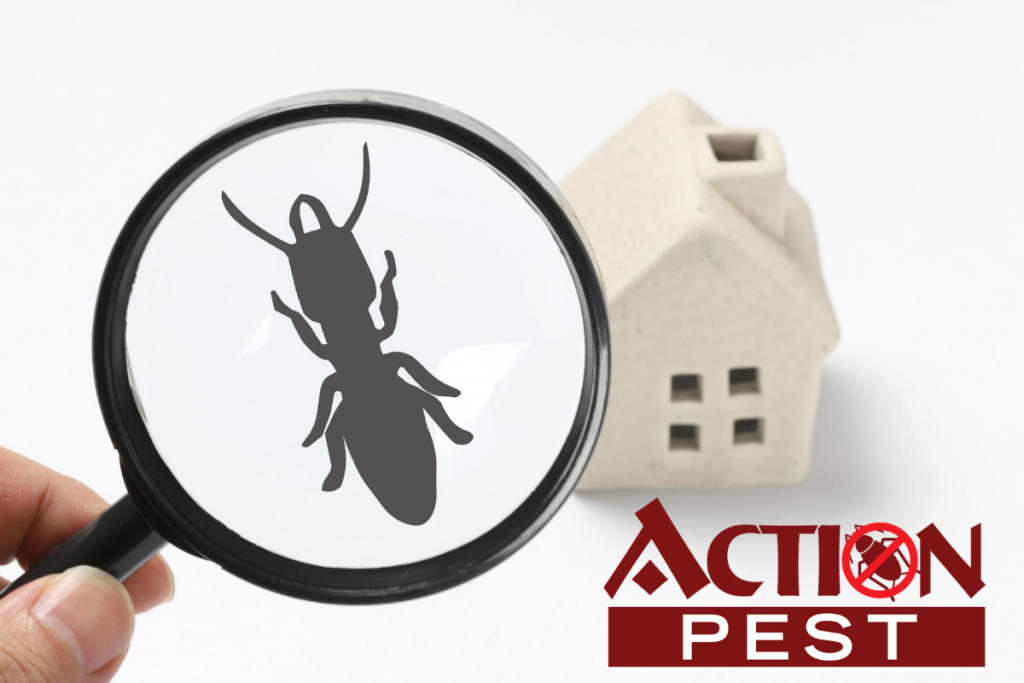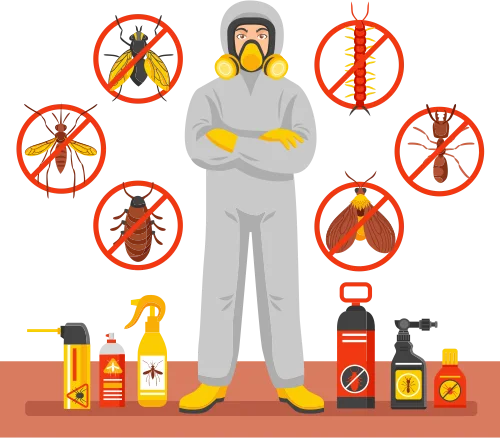Safe and Reputable Parasite Control for Lasting Defense
Efficient bug administration needs a multifaceted technique that stabilizes eco-friendly integrity with the need for efficient parasite reductions. The subtleties of these techniques might not be promptly clear, motivating a more detailed exam of the practices that can lead to sustainable parasite control outcomes.
Comprehending Pest Control Techniques
Parasite control encompasses a selection of methods intended at handling and removing undesirable insects and rats that can threaten both health and residential or commercial property. Understanding these techniques is essential for efficient insect monitoring.
The main groups of parasite control methods consist of mechanical, organic, and chemical methods. Mechanical methods involve physical obstacles and catches to stop insect entry and capture unwanted types. For example, using displays on home windows or using sticky catches can significantly minimize insect populaces without presenting unsafe materials.

Chemical bug control is frequently the most acknowledged technique, using chemicals to remove insects. These chemicals can be efficient however should be utilized with care to stay clear of unfavorable results on non-target species and the atmosphere.
Advantages of Eco-Friendly Solutions
How can green solutions transform insect control methods? The fostering of environment-friendly pest control techniques uses countless benefits, significantly boosting the effectiveness and security of bug administration (exterminator coquitlam). These services utilize natural ingredients, reducing the reliance on dangerous chemicals that can pose risks to human health and the setting. This change not only safeguards pet dogs and households but likewise reduces the possibility for dirt and water contamination.

One more benefit is the favorable effect on regional biodiversity. Eco-friendly remedies are designed to target certain insects while maintaining valuable bugs and wildlife, advertising a well balanced ecosystem. This technique straightens with the growing customer need for sustainable techniques, boosting the online reputation of bug control companies.
Integrated Parasite Monitoring Strategies
The implementation of eco-friendly solutions naturally results in the adoption of Integrated Bug Monitoring (IPM) approaches, which further enhance parasite control efficacy. IPM is an alternative approach that integrates numerous tactics to take care of insect populaces while reducing ecological impact. This method stresses making use of biological, social, mechanical, and chemical controls, making certain a balanced and sustainable technique of insect management.
One fundamental facet of IPM is the thorough analysis of parasite task and environmental conditions. By monitoring parasite populations and identifying their life process, specialists can implement targeted treatments that disrupt the parasite's habitat or lifecycle, reducing dependence on chemical pesticides. Additionally, cultural practices such as plant rotation and environment control can substantially decrease pest facility and reproduction.
An additional critical component is the usage of biological control agents, such as helpful bugs or microbes, which can normally suppress bug populations. When chemical applications are essential, IPM prioritizes making use of low-risk chemicals and applies them uniquely, reducing direct exposure to non-target organisms and people.
Incorporating IPM approaches not just enhances parasite control efficiency but likewise promotes a much safer community, aligning with the growing need for lasting techniques in parasite management.
Safe Practices for Property Owners
Understanding the importance of risk-free practices in pest control can empower home owners to properly manage parasite issues while protecting their wellness and the atmosphere. Applying preventive measures and safe methods is critical in reducing exposure to harmful chemicals.
House owners should first evaluate their setting for problems that attract insects, such as standing clutter, water, and food waste. Consistently cleansing and securing access points can discourage parasites from invading the home. Making use of natural deterrents, such as crucial oils or diatomaceous earth, can supply efficient alternatives to chemical pesticides.
When chemical treatments are necessary, property owners should select products that are specifically identified as risk-free for residential usage. It is important to comply with application guidelines diligently to prevent too much exposure. Using targeted treatments in areas where bugs are recognized, rather than blanket spraying, can substantially reduce chemical usage.
Last but not least, preserving open interaction with pest control specialists is important. Property owners must ask about the safety of products used and request environmentally friendly options whenever possible. By taking on these risk-free methods, home owners moved here can develop a much healthier living atmosphere while properly managing parasite issues.

Tips for Long-Term Defense
Establishing a bug management method that emphasizes long-lasting protection can significantly enhance the performance of the safe techniques formerly talked about. To achieve this, homeowners need to carry out routine evaluations of their residential or commercial property, concentrating on hidden locations such as attics, basements, and crawl areas. Early detection of bug task is vital in preventing problems from taking hold.
Furthermore, preserving a clean setting is essential. This consists of correct food storage, without delay cleaning up spills, and consistently throwing away garbage. These methods minimize attractants that attract pests right into the home. Securing entry points, such as splits around home windows and doors, can properly obstruct potential bug gain access to.
Landscaping should also be considered; keeping plants cut and preserving a distance between vegetation and the home lessens hiding areas for pests. Making use of natural deterrents, such as crucial oils or diatomaceous planet, can further dissuade problems without considering severe chemicals.
Lastly, teaming up with a specialist insect control service for routine evaluations can provide an additional layer of explanation safety and security. These experts can offer customized referrals and advanced therapies, making sure that your home remains shielded against pests in the lengthy term.
Conclusion
To conclude, risk-free and trusted insect control needs a multifaceted method that emphasizes green methods and integrated insect administration. By implementing natural deterrents, conducting normal evaluations, and maintaining proper sanitation, homeowner can considerably reduce bug populaces while protecting valuable bugs and the atmosphere. Partnership with expert insect control services enhances the performance of these techniques, guaranteeing customized solutions that supply long-term security and satisfaction versus future invasions.
Effective parasite management calls for a complex technique that stabilizes ecological honesty with the need for efficient insect reductions. The adoption of green insect control approaches offers various benefits, considerably improving the performance and security of bug management.The implementation of environment-friendly services normally leads to the fostering of Integrated Parasite Monitoring (IPM) approaches, which better enhance bug control efficiency. exterminator coquitlam. By this keeping track of pest populations and identifying their life cycles, professionals can carry out targeted interventions that interfere with the insect's environment or lifecycle, minimizing reliance on chemical pesticides.In verdict, safe and trusted insect control calls for a complex method that highlights eco-friendly techniques and integrated parasite monitoring